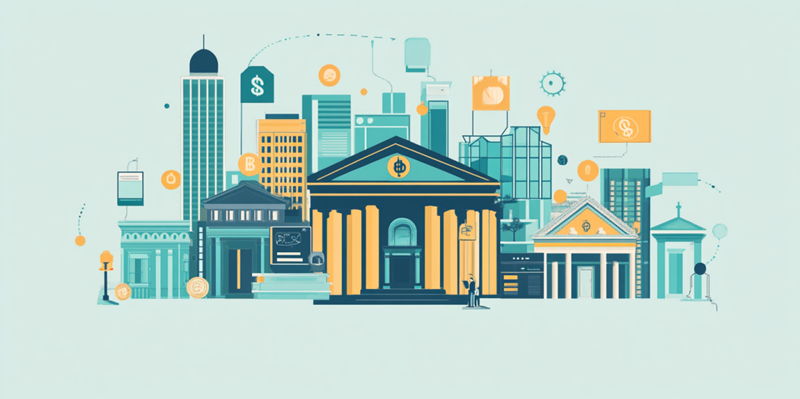Innovations in fintech are fundamentally changing how we manage our finances, access loans, and perceive traditional banking institutions by integrating technology and financial services. Fintech, which stands at the crossroads of finance and technology, is driving significant transformations in four key areas: neobanks, peer-to-peer (P2P) payments, crowdfunding, and open banking. These shifts are redefining the financial landscape, presenting both opportunities and challenges to traditional banking systems.
Neobanks
Neobanks, which are digital-only banks that operate exclusively online without physical branches, offer a suite of financial services facilitated by advanced technology. These banks emphasize user-friendly digital interfaces and aim to provide faster, cheaper services than conventional banks. A notable example of a successful neobank is Revolut, a UK-based company that allows users to send international payments, manage multiple currencies, and exchange money. Revolut recently secured a UK banking license, positioning it to compete more effectively with traditional banks. The neobank market is rapidly expanding, with projections indicating growth from a valuation of $98.40 billion in 2023 to an astonishing $3,406 billion by 2032. Despite their advantages, some neobanks face challenges such as the lack of overdraft facilities and criticisms regarding customer service quality.
Peer-to-Peer (P2P) Payments
Peer-to-peer (P2P) payment systems allow individuals to transfer money directly to each other using digital applications like Venmo or Cash App, effectively bypassing traditional banking channels. This technology facilitates expedited and simplified money transfers, providing a convenient alternative to conventional methods. While P2P payments are advantageous for their speed and ease of use, it is generally advisable to limit transactions to trusted contacts. Verifying recipient information is crucial to avoid errors, as correcting mistaken transfers can be difficult. The rise of P2P payments reflects a growing preference for digital, user-friendly financial solutions that streamline everyday transactions.
Crowdfunding
Crowdfunding platforms enable individuals and businesses to raise funds directly from the public, bypassing traditional bank loans. This mechanism democratizes the funding process, allowing innovators and entrepreneurs to solicit small contributions from a large audience. Platforms like Kickstarter exemplify this trend by enabling creative projects to receive financial backing directly from supporters. Crowdfunding offers the advantage of reducing reliance on stringent bank loan criteria, fostering innovation and entrepreneurship. However, challenges remain, such as the need to reach a funding goal to receive any funds and the substantial effort required to market and maintain a campaign. Despite these hurdles, crowdfunding continues to empower a diverse range of projects and ventures.
Open Banking
Open banking is a concept that allows consumers to share their banking data with approved third-party applications to secure better financial deals. This approach facilitates easier management of finances across different accounts and helps consumers find more competitive banking products. For example, streamlined loan applications can use financial data from various banks to present the most favorable loan offers to clients. While open banking offers significant benefits in terms of convenience and financial empowerment, it also increases the risk of data breaches due to the sharing of sensitive financial information with third parties. As open banking continues to evolve, striking a balance between accessibility and security remains critical.
Overarching Trends and Consensus Viewpoints
Fintech innovations are reshaping the banking world, making financial services more efficient, user-friendly, and cost-effective. Traditional banks face mounting pressure to adapt to these changes and enhance their own services in response to the growing influence of fintech. Consumers benefit from increased control, improved financial management tools, and more readily accessible funding options. However, the rapid adoption of these technologies also necessitates careful consideration of security and reliability to maximize their positive impact on consumers.
Main Findings
Neobanks, P2P payments, open banking, and crowdfunding are significantly transforming the traditional banking landscape. These fintech advancements offer various advantages, including lower costs, enhanced user experiences, and greater financial empowerment for consumers. Nonetheless, they also present challenges such as security risks, the necessity of consumer trust, and service reliability. The ongoing evolution of fintech requires traditional banks to continue innovating and improving their services to remain competitive and meet the changing needs of their customers.
Conclusion
Innovations in fintech are revolutionizing the way we handle our finances, obtain loans, and view conventional banking institutions by merging technology with financial services. Positioned at the intersection of finance and technology, fintech is catalyzing considerable change in key areas such as neobanks, peer-to-peer (P2P) payments, crowdfunding, and open banking. Neobanks are digital-only banks that offer services exclusively through mobile apps, bypassing the need for physical branches. P2P payments allow users to send money directly to each other quickly and efficiently, often with minimal fees. Crowdfunding platforms enable individuals and businesses to raise funds from a large number of people, disrupting traditional fundraising methods. Open banking permits third-party financial service providers to access consumer banking, transaction, and other financial data through secure APIs. Collectively, these shifts are reshaping the financial landscape, introducing opportunities for growth and posing challenges to established banking systems.

